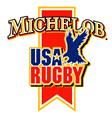Kirk Khasigian Takes Center Stage
Long Apprenticeship Under Father and Current Coach Appears Over
As the USA readies for this summer's campaign to qualify for the 2003 World Cup, Kirk Khasigian's rugby career has come nearly full circle.
Four years ago, as a recent college graduate, Khasigian broke into the Eagles squad just prior to the Americas zone qualifying tournament in Argentina. This summer, the business consultant-cum-test veteran will be called upon to deliver 18 caps' worth of skill and leadership if the USA is to earn a trip to next year's world championship in Australia.
This time around, Khasigian understands what it takes to compete against the professional rugby players that are his international rivals.
"I had rugby built into my lifestyle at school," Khasigian recently observed. "Now, having played senior rugby in Sydney and San Francisco, I appreciate the commitment you have to have. I appreciate the opportunity to play test rugby more."
Even as Americans like US captain Dave Hodges are making their mark as professionals in Europe, the Eagles continue to rely heavily on domestic-based players. For these Stateside athletes and those who aspire to join them, there's a premium on balancing their livelihoods with the training required to win at the test level.
As Khasigian's career unfolds, the competing demands grow harder and harder to sustain , but there's no let up in sight if the Eagles are to make their mark next year in Australia.
�Toeing the ball around�
Like more and more players in America, Khasigian was introduced to rugby at a relatively early age. These days, youngsters often come to the game through USA Rugby-sponsored youth programs, but as a grade-schooler Khasigian learned about it from his father.
Fred Khasigian too was a hooker, for many years a stalwart for Sacramento. In 1976, one year before Kirk was born, the young physician was good enough to be part of the first-ever test side fielded by the USA.
As an 'original Eagle,' Khasigian senior knew plenty about the competing demands of career and rugby and sympathizes with his son�s ambitions. "It was kind of the same in my day, although these guys [of Kirk's generation] are more devoted to rugby - they have a more professional approach and more organization.
"Kirk had a natural ability and was able to succeed early," his father continued. "There's always good players coming through, but Kirk has been very focused in maintaining his commitment."
Kirk recalls going out to Sacramento practices to 'toe the ball around,' and soon enough broke in as a scrumhalf, before moving to flanker his senior year in high school. Before his sophomore year at the University of California, he changed again, moving to his current front row home. The latter move was daring, since he had been named a freshman All-American as a backrower, yet Khasigian was resolved to do anything he could to have a chance to compete at higher levels.
Going for the World Cup
Meanwhile, in the classroom, Khasigian was preparing for a business career. In the spring of 1998, the college senior landed a job with 'Big 5' accounting firm Arthur Andersen as a business process consultant.
But a chance to make the USA World Cup squad loomed, and so Khasigian determined to persuade Andersen to defer his starting date to December 1999. "That's not a common thing, but I reasoned I would be a stronger candidate," he said.
The following year, Khasigian indeed made the squad as backup to Tom Billups, who was then playing professionally in Pontypridd. Training behind the player who would go onto to set a US record for international appearances, Khasigian was thinking about what he needed to do to become a starter.
"I�d been a reserve and knew I needed to prepare to compete for the opening after Tom's retirement," he said. "I needed to make it happen."
A teammate put him onto Australia�s famous Sydney University club, and shortly Khasigian was calling Andersen back to again push back his start date.
By now he was a World Cup veteran, but when he got to Australia, Khasigian was surprised by the dedication to fundamentals like fitness. "My experience in America was that we needed to work most on technical skills - that came first - but in Australia fitness came first. We often trained for 40 minutes before we ever picked up a ball. The mindset was a revelation to me."
"As a result, the game is much faster and fitness is a necessity just to be able to compete. More and more this is true at the test level too."
Playing in America
After a successful season in Sydney - incidentally, self-financed by Khasigian - he moved home to at last begin with Andersen. Initially he joined his father's old club, Sacramento, before work brought him to San Francisco, where he now represents the Olympic Club.
During his three years in the American club ranks, Khasigian has learned plenty about juggling his job with his rugby. Once again, creating an environment that facilitates his playing goals has been crucial. "I've committed to working for a company that would support my vacation and [flexible] working hours for rugby training. I�ve never been unavailable for the US team."
All of which gets him to square one. Khasigian is reluctant to talk about his past international career because he feels the need to earn the starting job from new head coach Tom Billups. And remembering the pressure-packed 1998 qualification tournament in Argentina, he refuses to look ahead past the USA�s World Cup qualifying round opponents, especially gritty Uruguay.
Perhaps then the last word is best left to father Fred. "There's always good players coming through, but this is what [Kirk] has worked really hard for. It's up to him and the team's leaders to build on December's game against South Africa and go through to the World Cup."
|





